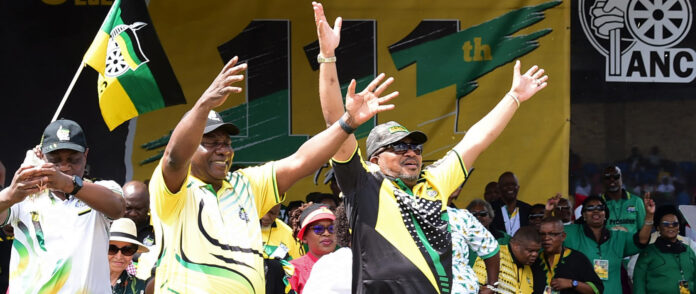After years of internal turmoil, public mistrust and waning grassroots support, the ANC is now introspecting and laying out bold plans to renew itself.
This is contained in the ANC’s discussion document that will be discussed at the party’s
national general council in December.
From leadership reforms to reconnecting with communities, the ANC is promising to fix its house and regain its footing as the champion of the people.
But will these efforts be enough to reverse its setbacks?
One of the ANC’s key priorities is leadership renewal. The party admits that its leadership structures have stagnated, leading to inefficiency and a disconnect with the people.
“Leadership succession should be more rigorous,” reads the document, emphasising the need for fresh perspectives and a healthy mix of seasoned leaders and new blood.
The document further states that the ANC is even considering informal term limits and rotation in certain roles to prevent gatekeeping and stagnation.
This introspection signals a recognition of the party’s internal challenges. By encouraging more women and young people to take leadership roles, the ANC hopes to inject new
energy into its ranks.
“At least a certain percentage of top positions should be occupied by people under 50,” the party suggests, showing its commitment to generational change.
Another major focus is restoring public trust through transparent candidate selection.
“Enhance the integrity of candidate lists,” the party urges, proposing the use of independent panels to vet aspiring candidates for public office.
The ANC is also looking to reconnect with its grassroots base, a critical step in
regaining the trust of ordinary South Africans.
At the branch level, ANC structures are being urged to actively champion local
community issues, such as fighting for new clinics or repairing schools.
“We need to show that we are still tribunes of the people, not merely focused on internal meetings and conferences,” the party states.
To ensure that its renewal efforts are not just empty slogans, the ANC is promising rigorous monitoring and evaluation, emphasising the importance of tracking tangible indicators of progress, such as active branches, trained leaders, and resolved disciplinary cases.
The recently established renewal task team will play a key role in this process, said the document, regularly reporting on concrete outcomes.
“Keeping renewal tangible and showing results will prevent ‘renewal’ from becoming an empty slogan,” the party admits, highlighting its commitment to accountability.
On the international front, the ANC is focusing on economic diplomacy to secure investment and trade commitments.
“Proactively secure investment and trade commitments,” the party urges, calling for partnerships with Brics, Asian, Latin American, Middle Eastern and EU countries.
The ANC is also looking to diversify energy and food security partnerships to reduce vulnerability to global supply shocks.
“We should partner with countries like China on renewable energy technology and with Gulf states on refining capacity,” the party suggests, showing its awareness of the need for economic resilience.
Domestically, the ANC is introspecting on its management of migration, which it admits has fuelled xenophobia and social unrest, and calls for coordinated approaches to migration and development with the Southern African Development Community and the African Union.
The ANC is also reflecting on its diplomatic stance, emphasising the need to balance solidarity with pragmatism.
“Stand in solidarity with just causes worldwide but also be pragmatic,” the party states, highlighting its non-aligned stance on the Russia-Ukraine conflict and its focus on facilitating peace talks.
On the Israel-Palestine issue, the ANC is urging a two-state solution and humanitarian aid to Gaza, showing its commitment to being a voice of reason and humanity.
“We should strive to be seen as a voice of reason and humanity, rather than being perceived as uncritically aligned with any particular bloc,” the party
admits.



